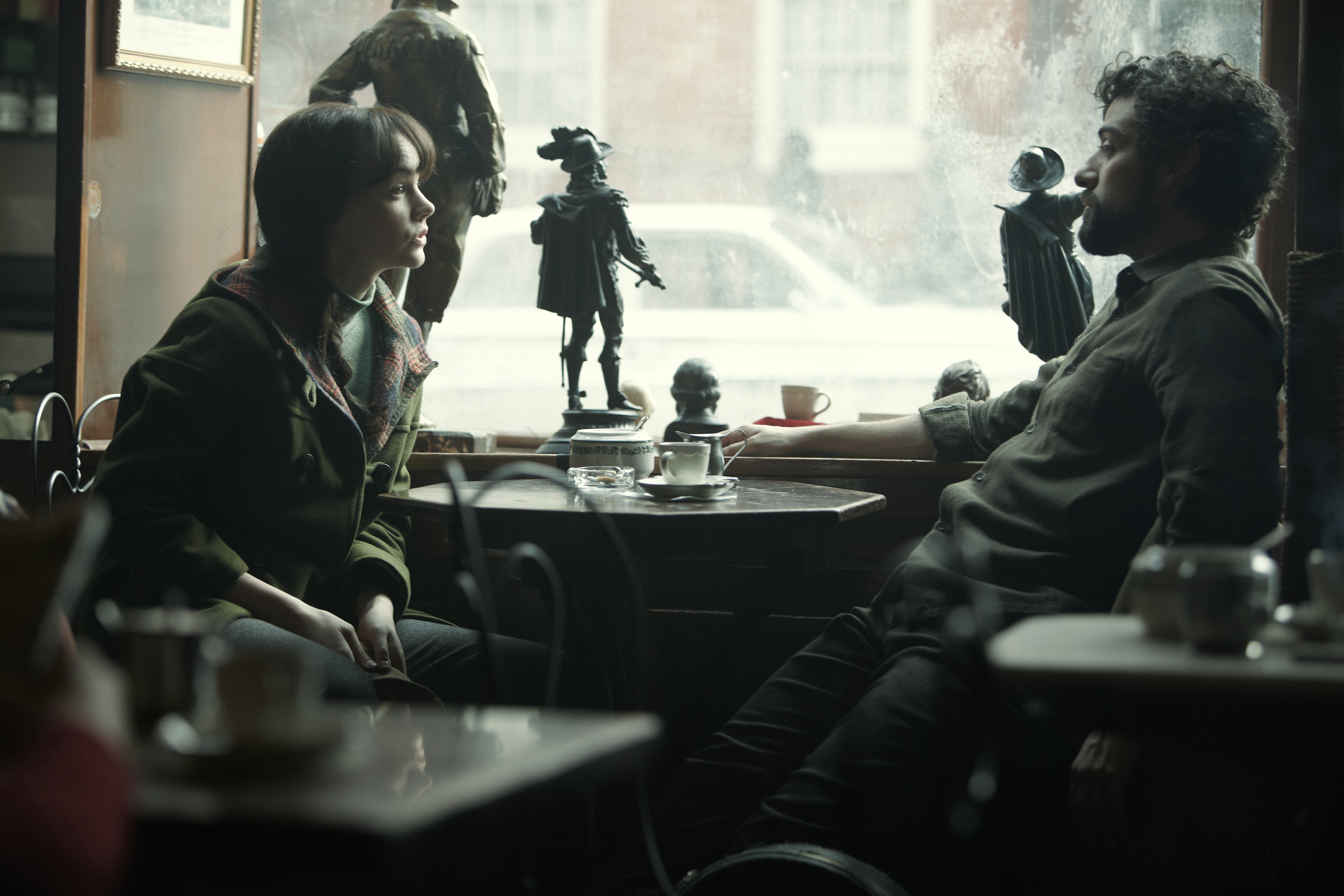Inside Llewyn Davis
Opens Fri., Dec. 20 at Harvard Exit and Sundance Cinemas. Rated R. 105 minutes.
When the Coen brothers make an outright comedy, they let you know it. There may be death and disaster in Burn After Reading or O Brother, Where Art Thou?, but we’re plainly being invited to laugh at human folly. Yet while there are funny bits in this simple story of a struggling folk musician in 1961 Greenwich Village, very loosely inspired by Dave Van Ronk’s memoir The Mayor of MacDougal Street, the situation for Llewyn Davis (Oscar Isaac) is fairly dire. He has no money, no apartment, and no real prospects in the music industry—apart from an album that isn’t selling. He’s even impregnated the wife (Carey Mulligan) of a friend (Justin Timberlake), both slightly more successful folkies—meaning they have an apartment with a couch for Llewyn to crash on. He’s the wrong guy at the right moment, as the movie’s poignant final scenes make clear.
So, while I and others tried to laugh at a preview screening, you should temper your expectations to appreciate the movie’s minor-key rewards. Isaac can really sing and play guitar; the sterling soundtrack, by T Bone Burnett, is built around live music performances; and the catchiest tune—an astronaut ditty called “Please, Mr. Kennedy”—is a knowingly cornball novelty song. But Llewyn’s trajectory is fundamentally downward and depressing. He’s a jerk to fellow musicians and benefactors, rude to his sister, and dismissive of others’ talent—possibly because he’s unsure of his own. Idealism has made Llewyn cynical. He scoffs at careerists, sellouts, and squares, sputtering at his sister’s humble life in Queens (“Just . . . exist?!? ”) like it’s purgatory. Such selfishness can be excused by genius, but the Coens never imply Llewyn is some kind of misunderstood genius. He’s a guy in need of a moral education, possibly a tutorial beating, both of which he’ll belatedly receive.
Like a vintage album cover sprung to life, Inside Llewyn Davis ’s depiction of pre-Beatles, pre-Dylan New York has a wonderful, dirty-snow verisimilitude. Llewyn is often framed in tight tenement hallways or seen trudging down sidewalks with shoulders hunched against the cold. (He can’t afford a winter coat, he says more than once.) This threadbare era seems closer to World War II than to what we now consider the ’60s. The apartment of some Upper West Side academics who shelter Llewyn—and suffer his abuse—is decorated with a perfect magpie collection of postwar trends: foreign movie posters, abstract art, volumes of Freud and Camus, African tribal masks, and Danish furniture. For them, folk music, embodied by Llewyn, is just another token of the exotic and the progressive. Letting him sleep on their couch and care for their orange tabby is like sponsoring an orphan in Botswana. And Llewyn likewise has the sneaking suspicion that folk music is but a commodity, a fad, to those who come to hear him play at the Gaslight Cafe.
As a man, Llewyn is a self-described asshole offstage; he’s only at his best onstage; and Isaac gives him a genuine grace and connection to songs including “Dink’s Song,” “The Death of Queen Jane,” and the sea shanty “The Shoals of Herring.” The latter is sung to Isaac’s dying father, fading away in an old sailor’s home, like feeble old Woody Guthrie being visited at the hospital by another young man with a guitar. Llewyn plucks his last notes and looks up at his silent father—whether loving, disapproving, or deaf, we can only guess. “Wow,” is all he can say to the old man. It’s a beautiful moment, a great performance made for absolutely no money and an audience of one. If that’s success in the Coens’ scheme, it may be the only success Llewyn will find in this sad ballad of a movie. If music can’t save him or provide a career, it’s also his only succor against life’s crushing disappointments.
bmiller@seattleweekly.com








